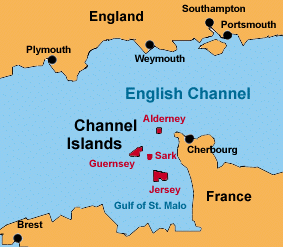
A Jersey Foundation is a fairly new legal entity. After providing several wealth management legal structures for many years, Jersey was overdue for a law regulating foundations.
The Jersey Foundations Law of 2009 created a mechanism for the formation and regulation of private foundations. Along with the new law, the government also enacted the Jersey Foundations Regulation in 2009 to supplement their new law.
Wealthy foreigners can take advantage of Jersey’s Foundations Laws and Regulations where founders can limit the beneficiaries’ rights and choose not to even have beneficiaries.
Jersey Foundation Benefits
A Jersey Foundation has the following benefits:
• Complete Foreigner Entity: The founder and beneficiaries can all be foreigners.
• No Taxes: Foundations and beneficiaries will not be subject to any taxes. However, U.S. taxpayers and everyone else subject to global taxation must disclose all income to their governments.
• Founder Control: Founders can execute a charter and regulations retaining may right and powers, including limiting beneficiaries rights.
• Privacy: The founder and beneficiaries names can be kept out of all public records including the assets and their locations.
• Protection: The law requires the appointment of a qualified council member to ensure following the foundation’s charter, regulations, and the law. A guardian must also be appointed to oversee the council and to protect the assets and the beneficiaries.
• English: The official language in Jersey is English.

Foundation Name
Every Jersey foundation must not duplicate an existing Jersey legal entity name or be too similar.
A Jersey foundation name must end with the word “Foundation”.
Incorporation
Jersey foundations are incorporated by a “qualified person” who is registered pursuant to the Jersey Financial Services Law of 1998.
An application is filed with the Registrar of Companies (Registrar) accompanied by the Foundation Charter, payment of the registration fee along with a certificate signed by the applicant identifying the initial “qualified member” and the registered local office address. The certificate also includes verification that the applicant is in possession of the foundation’s regulations approved by the qualified member and the founder and a guardian has been appointed.
Upon approval of the incorporation, the Registrar enters the foundation’s name and information regarding the qualified member into the government register and provide a registration number. Entry into the register is proof of the foundation’s incorporation.
Founder
The founder is the person instructing the qualified person to file an application for incorporating the foundation. The founder is allowed by the law to retain certain rights and powers. Whoever makes endowments to the foundation are not automatically recognized as the founder. The foundation’s regulations alone will specify who the founder is.
Council
Foundations must have a council to manage and administer the assets and fulfill foundation objectives. While the council must have a minimum of one member, it must include a “qualified person” acting as the qualified member. The foundation’s charter and regulations dictate how the council conducts the foundation’s affairs. Council members must act with honesty and in good faith in the foundation’s best interests. In addition, the council must act with diligence, care, and skill which reasonable prudent individuals would use.
Council records must be maintained and be accurate under the law.
Council members cannot be exempt from willful misconduct, fraud, or gross negligence.
Charter
The foundation’s charter is filed with the Registrar upon applying for incorporation making it a public document. The law requires the following information in each charter:
• Foundation’s name – Cannot be misleading and must end with the word “Foundation” or its equivalent in a foreign language.
• Foundation’s purpose – Only lawful purposes which can be for charity or non-charitable. They can benefit one person or a class of persons. The names of beneficiaries do not have to be included in the charter, and instead can be included in the regulations. Specific purpose foundations which wish to remain confidential can avoid being mentioned in the charter and included in the regulations instead.
• The initial council members must be named with their addresses.
• An initial endowment is not required upon incorporation, but if one exists, its details must be included and whether future endowments might be made.
• Specification of what happens to the assets upon winding up.
• If a fixed period of time expires or a specific event triggers winding up should be specified in the charter.
• Specify if anyone has the right to wind up the foundation.
• Any other important information depending upon the purposes for the foundation.

Regulations
A foundation’s regulations are a private document not available to the public and only those individuals appointed by the regulations can have access to the regulations unless the regulations state differently.
Regulations basically establish the council and provide the mechanism for the appointment, removal, retirement, and compensation of the council members. In addition, the regulations should provide the process for the council’s decision making, involvement by any third parties, and types of duties and functions which may be delegated by the council. The appointment of a new qualified member must be set forth when the existing qualified member is unable to continue. Finally, the initial guardian must be appointed and the process for replacement and compensation of the guardian.
Qualified Member
At least one qualified member must be a member of the council. The certificate filed with the Registrar when incorporating will identify the qualifying member who is registered under the Jersey Financial Services Law of 1998 to perform trust company services.
Guardian
Every foundation must appoint a guardian. The guardian ensures that the council is accountable to the beneficiaries in their absence. The guardian also ensures that the council performs their functions under the charter, regulations, and the law.
Beneficiaries
If there are beneficiaries of the foundation, by law they have no interest in the assets of the foundation and are not owed any fiduciary duties. Unless otherwise provided by the charter, regulations, and the law; foundation beneficiaries do not have the right to receive any information, how it is administered, the assets, or how the foundation carries out its purposes. However, beneficiaries entitled to specific benefits can seek a Royal Court order for access to the benefits.

Taxes
Jersey does not impose any corporate tax, income tax, wealth tax, capital gains tax, gift taxes, or inheritance tax upon foundations and their beneficiaries.
However, taxpayers in the USA and other countries taxing global income are required to reveal all global income to their tax authorities.
Public Documents
Everything filed with the Registrar is open to public inspection including the foundation’s charter. However, the founder and beneficiaries names do not have to be in the charter (only the private regulations) providing them with privacy. Assets do not have to be endowed upon incorporation which can be left out of the charter as well to protect their identity and location.
Time to Incorporate
It is estimated that it may take up to one week for the incorporation process to be completed.
Shelf Foundations
No shelf foundations are available to purchase in Jersey due to their unique nature.
Conclusion
A Jersey Foundation has the following benefits: complete foreigner ownership, no taxes, privacy, founder can retain powers, protection by qualified council member and guardian, and English is their official language.


